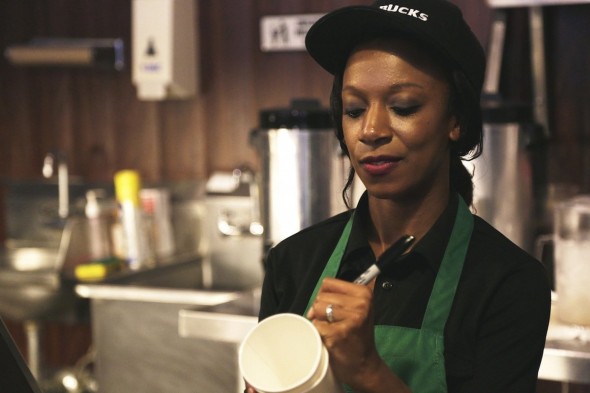
Wolfgang
When he walked up to the register, I had to look up to make eye contact with him. I greeted him and asked, “What can I get started for you?” He told me he wanted a venti nonfat latte. I marked the cup and asked my next question, “What’s your name?”
Wolfgang.
It took a few more interactions before I cemented his name in my head, and the first time I greeted him by name when I saw him in line, his face lit up.
Wolfgang and I had this 30-second encounter five days a week for several years. One day I noticed that Wolfgang wasn’t coming in each morning. I was perplexed but had to accept that something had altered his routine and his morning latte wasn’t part of it any more.
Fast forward a year. Wolfgang walked into my store and I called out, “Wolfgang! Where have you been? Long time no see!” He stopped in his tracks, an incredulous look on his face.
“How do you do that?”
“Do what?”
“Remember people’s names like that!”
I told him that he had a multitude of things about him to help me notice and remember him: he is a taller than average man, he speaks with a European accent, and, hello, his name is WOLFGANG!
We laughed together, but then his tone turned serious. “I want you to know that when I moved here three years ago, I didn’t know anyone. Coming in here every day and having you call me by name made me feel like I was known and that I belonged.” Tears welled in my eyes. I hadn’t known how my small act of noticing had impacted him.
Before I worked at Starbucks, noticing people wasn’t my thing. I confess that I even actively avoided noticing people. I rarely made eye contact or used the name tags people wore to actually say their names. They were there to help me accomplish my agenda and that was all.
Today, I can’t HELP but see people. God used a skill I needed to learn for my job to open my eyes to something He really wanted me to see: that He values each individual. I had no idea what He could accomplish through me by how I chose to notice those who crossed my path.
Noticing is a relational act of kindness. It involves sacrifice, putting someone else above yourself. Gary Chapman explains: “Kindness means noticing someone else and recognizing his or her needs. It means seeing the value in every person we meet.”
We live in a self-absorbed culture, where people are disconnected from the transforming power of community and relationships. When I choose to look for the value in an individual by intentionally noticing, I give God the opportunity to initiate something—in me and in them—that has eternal potential far greater than I can anticipate.
Jenn Nahrstadt
Q Place Friend
